We know that HIE is complex, and there is much uncertainty, grief and trauma to process, no matter what the outcome a family is facing. We were founded first as a peer support group, and have grown to provide comprehensive support programming and resources for families, worldwide, facing neonatal or pediatric-acquired Hypoxic Ischemic Encephalopathy.
Know that no matter where your journey with HIE takes you, you are never alone.
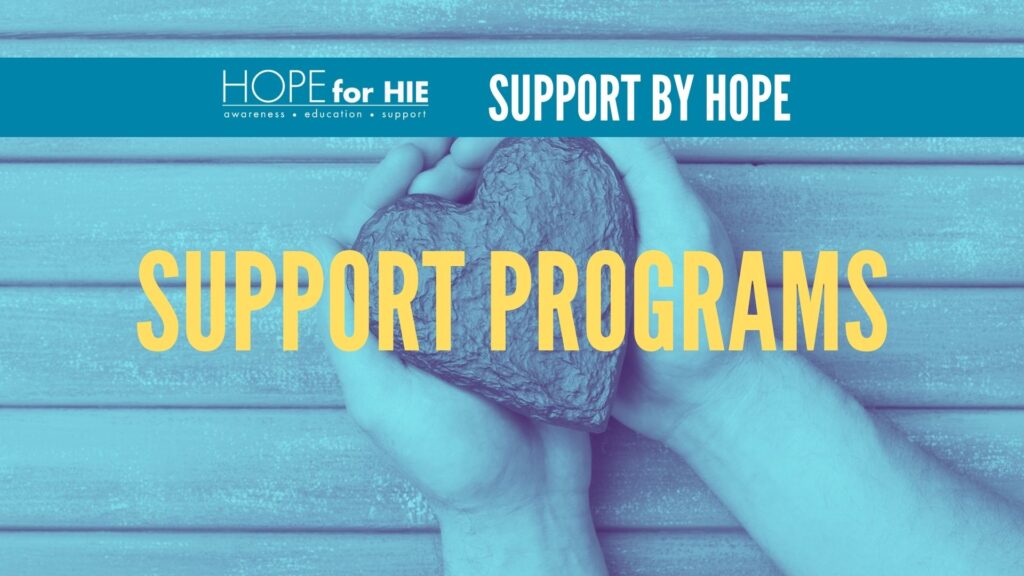

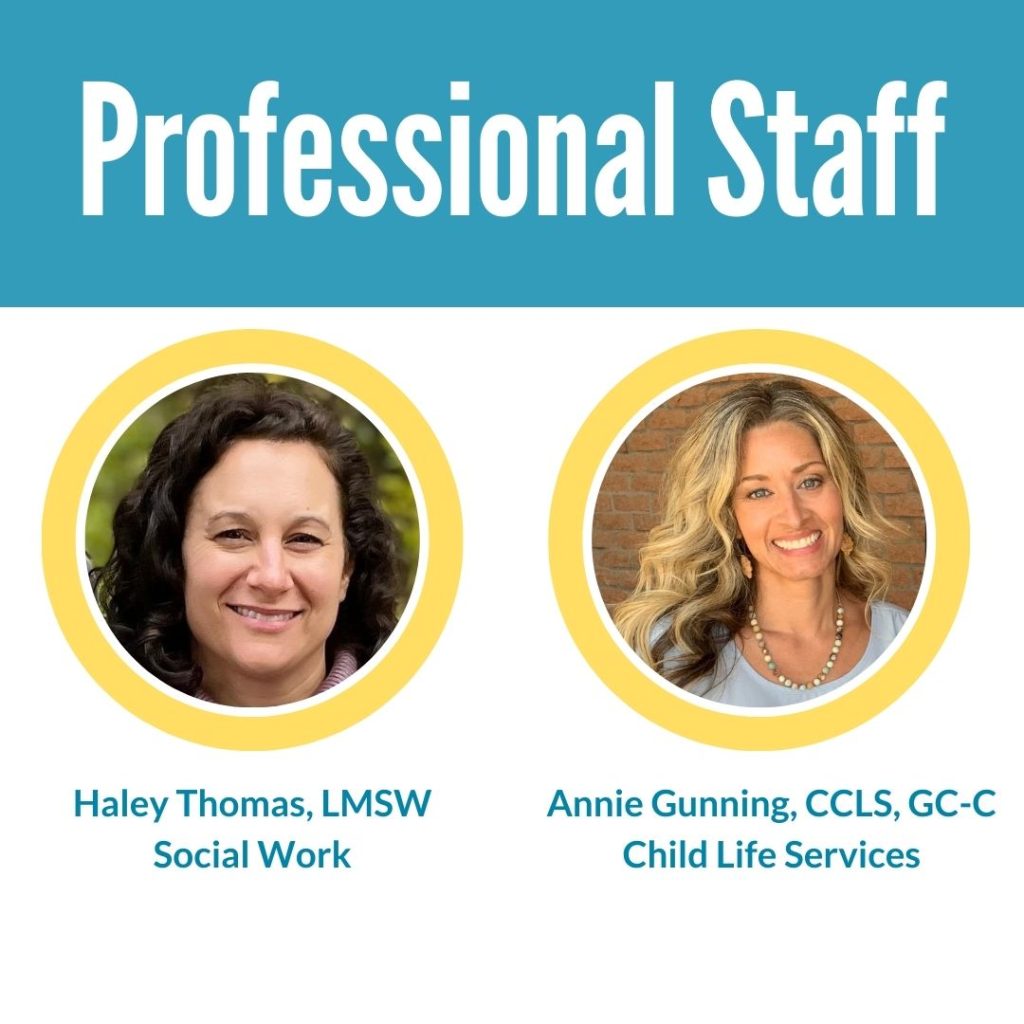
Complete the “Submit Request” form below so our professional, credentialed support staff can connect you to the resources that best support your needs.
If you are having trouble viewing the form, please enable cookies in your browser’s settings
Please Note: We are not medical professionals and cannot review medical records, review diagnostic tests (like EEGs, MRIs), provide medical advice and diagnostic information.
Hope for HIE has comprehensive support programs and services for the entire family, across all outcomes, ages and impacts. We strive to provide high-quality programming administered through credentialed, trained staff and a robust volunteer base of families, clinicians and researchers, worldwide to improve the quality of life for children and families impacted by neonatal and pediatric-acquired HIE.
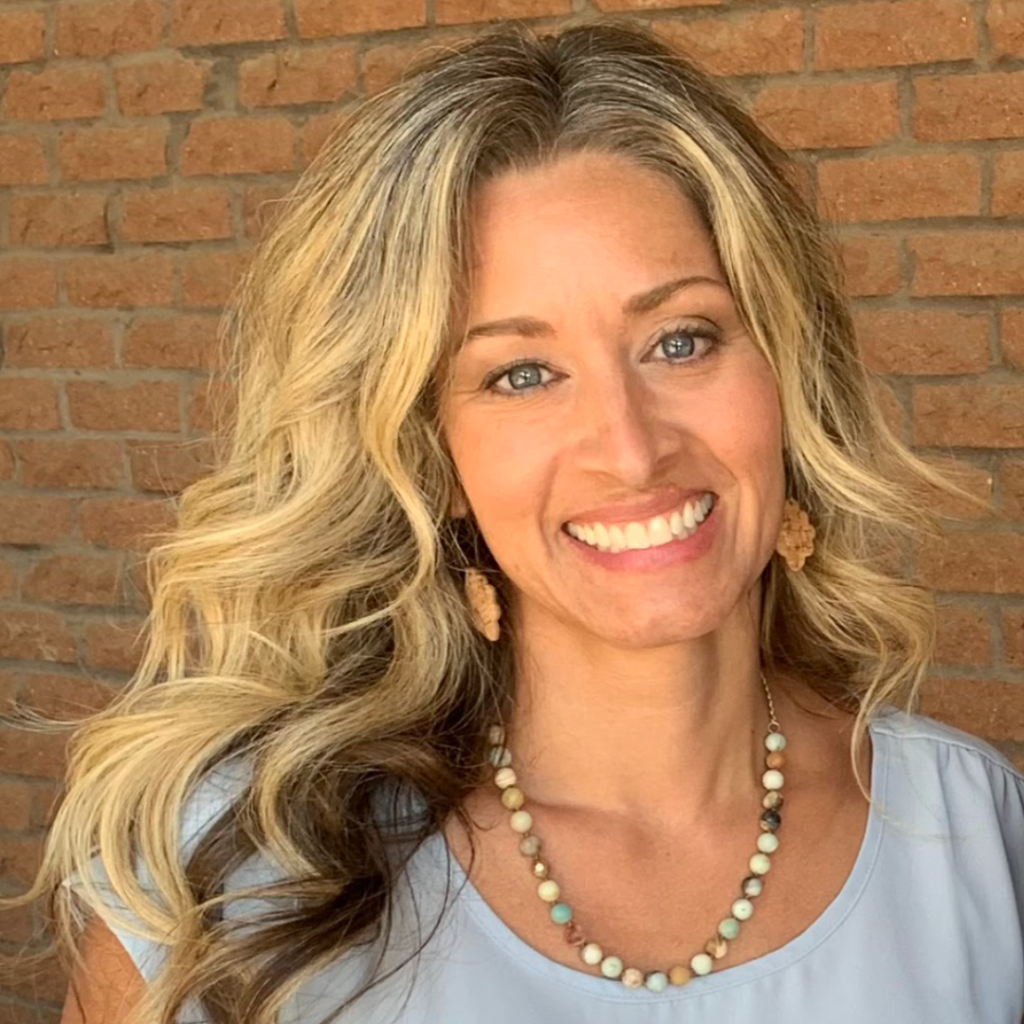
Led by our certified child life specialist, Annie Gunning, CCLS, CIMI, GC-C, families can connect in for specific services to help deal with medicalized life, supporting the whole family.
This includes developing coping plans for medical visits, inpatient hospitalizations, infant massage, developmentally appropriate play-based coping strategies, sibling, hospitalization, bereavement & loss support.
Fill out the intake form above (tap SUBMIT REQUEST – the form will drop down) to specify which services you are interested in learning more about, or connecting into.
All Hope for HIE families who have access to the app store on iProducts or Android can access the Child Life On Call App for FREE!
For those who may not have access, Annie can also share all resources from the app with families who request them through the intake form at the top of this page.
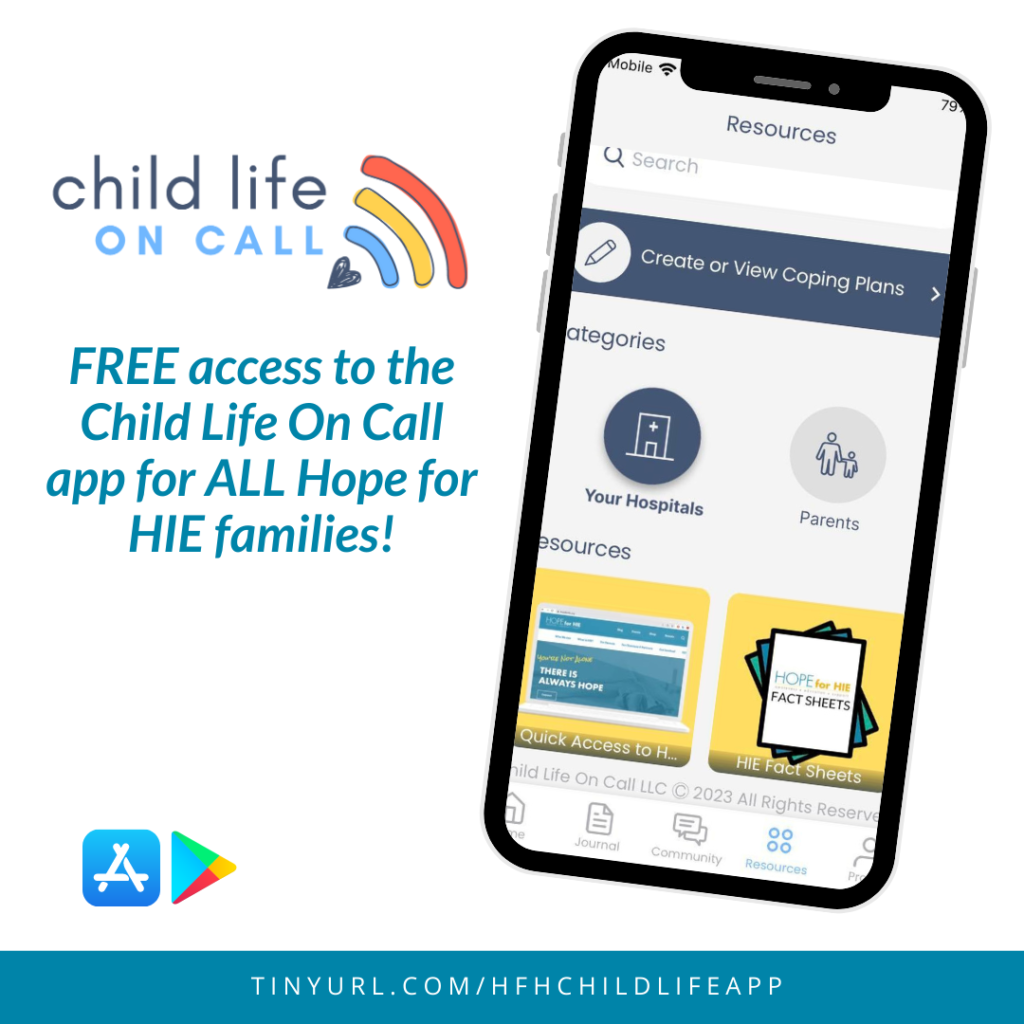
Referring your family, or an HIE family you work with, into Child Life services?

Hope for HIE provides comprehensive support programs and services to help families facing bereavement and loss due to HIE. Both Hope for HIE’s social worker and child life specialist are available to support the entire family.
We also host HIE Remembrance Day every April 20th during HIE Awareness Month, and host an online remembrance vigil for our loss families.
In addition, our Peer Support Mentors and HIE Loss Support Group are available for peer support connections.
Our comprehensive programs and support resources for loss can be found below:
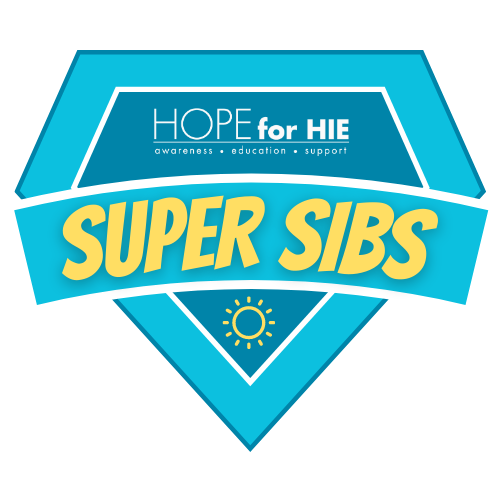
Siblings of children with HIE have their own unique experiences to share. We work to connect similar-age and interest super siblings to build peer support and bonds through video calls and other specialized support for siblings, including a dedicated program for HIE loss siblings.
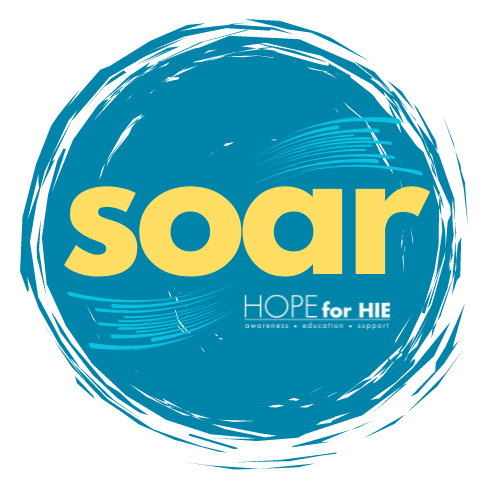
HIE kids need support for their journey including connection to a community of peers.
Welcome to our SOAR program — Support, Ownership, Advocacy, Resilience — for ages 7-17, a program to connect and empower our HIE kids through peer connections, self-advocacy, support and FUN as they grow into their life with HIE.
Annie Gunning, Hope for HIE’s Child Life Specialist, will facilitate this program and include video age group sessions, and interest/affinity groups and work with various accessibility needs to maximize participation.
Whether you are a parent, an adult with HIE from a neonatal or pediatric-acquired cause, an extended family member or friend, a child growing up with HIE, or a SuperSib, we have peer support for you, and continue to build out our programs and services regularly as we grow as an organization.
We host over 100 age, location, outcome, demographic and topic-focused support groups found on Facebook, connecting since 2010, in alignment with our Community Guidelines to ensure a safe, consistent experience.
Upon requesting, you will be sent a few questions to be verified before adding you into our network. All questions need to be answered before you will be granted entry to ensure we are connecting our community in safe and meaningful ways.
If you are a legal parent or guardian of a child with HIE, we invite you to request our Parent Support Hub where you can connect with thousands of other families from all around the world, across the spectrum of HIE backgrounds to find peer support, be linked in further to educational resources, and learn from one another in your journey.
Adults 18+ who were born with HIE or have a pediatric-acquired HIE diagnosis have a space to connect, learn more about HIE, get peer support and get involved in one of our online support groups. As we grow as an organization, we hope to expand our programming for adults living with impacts from neonatal and pediatric-acquired HIE and their unique journey.
If you are new to the journey, within the first year post diagnosis, our New to HIE group has designated administrators and moderators who come with years of experience and are standing by to support the unique needs of our new families who find us. Our dedicated Peer Support Mentors are also available to connect with to help serve as a support during the first year post-diagnosis.
We bring the HIE loss community together with dedicated support through our video support groups, online Facebook community, and a special parenting living children after HIE loss subgroup. Topics of support include mental health, coping with grief, relationships, and pregnancy after HIE. Our dedicated Peer Support Mentors are also available to connect with to help serve as a support for families facing loss due to HIE.
Siblings to children with HIE have their own unique experience to share. We work to connect similar age and interest super siblings to build peer support and bonds through video calls, and other specialized supports for siblings.
If you are a grandparent, aunt, uncle or other extended family member, we have a group for you. We know that HIE impacts the whole family, and we want to connect you to others who need support for themselves, and want to learn how best to support the immediate family going through HIE.
Hope for HIE provides trained peer mentors for 1:1 mentorships for those new to HIE within the first year of diagnosis, either from birth or acquired HIE in childhood. Mentors and mentees are paired through a process developed by Hope for HIE’s social worker.
To join the program, please use the form below:
Hope for HIE provides trained peer mentors for 1:1 mentorships for those new to HIE loss, either from birth or acquired HIE in childhood. Mentors and mentees are paired through a process developed by Hope for HIE’s social worker.
To join the program, please use the form below:
Hope for HIE provides trained peer mentors for 1:1 mentorships for families across many causes – neonatal or pediatric-acquired – short term for a quick conversation or long term (up to a year), and for parents, extended family and beyond. Mentors and mentees are paired through a process developed by Hope for HIE’s social worker.
Some demographics connecting:
To join the program, please use the form below:
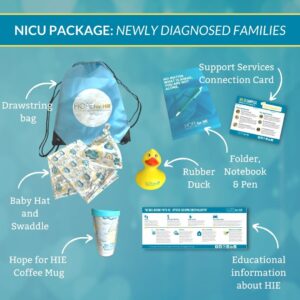
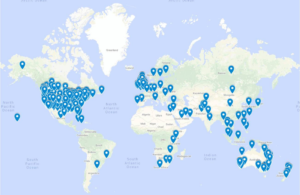
Connect with families, read inspiring stories, and get helpful resources delivered right to your inbox.
Haley Thomas, LMSW, Hope for HIE’s social worker, can connect families to local and regional resources such as counseling and mental health provider referrals, living assistance programs, and other support services to meet the needs of individual family situations, as a member of the Neurology Social Services Network.
She also leads video support groups connecting various demographics in our community. You can learn more by visiting the EVENTS page.
Fill out the intake form above (tap SUBMIT REQUEST – the form will drop down) to specify which services you are interested in learning more about, or connecting into, or to reach Haley via email, click below.
Referring your family, or an HIE a family from the NICU or PICU?
Contact Social Work